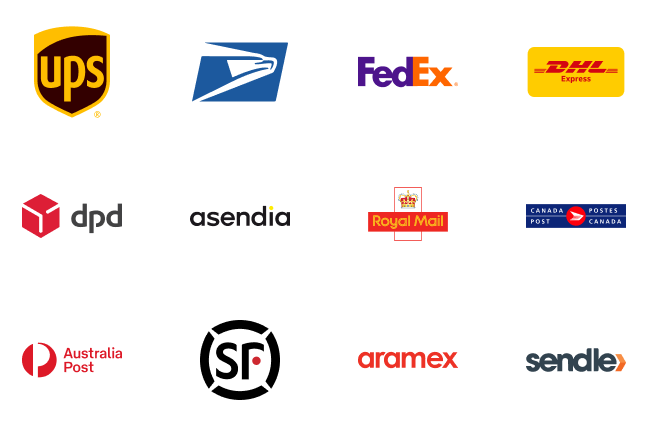As each day seemingly brings another news story about cybersecurity threats like DDoS attacks, phishing, website hacks and more, eCommerce security has never been more important for online businesses.
When your customers have the slightest feeling that their transactions are not secure, they won’t hesitate to go to another website – leading to a loss of revenue for your business. With this guide, you’ll be able to learn more about the security threats facing eCommerce businesses and tips on protecting your online store!
What is eCommerce Security?
eCommerce security refers to the cybersecurity concepts that allow for secure electronic transactions online. eCommerce security allows people to buy and sell products and services on the Internet with a framework in place that provides security for all the parties involved. It’s become increasingly important for merchants and shoppers alike in recent years.
Why is eCommerce Security Important?
eCommerce site security is critical for a number of reasons, specifically when it comes to protecting the privacy and sensitive data of customers on a website, safeguarding the finances of an online business, preventing fraud and financial scams, and defending the reputation of an online store as a safe place to conduct transactions.
When the necessary security features aren’t implemented on a websites, both online merchants and customers alike are at serious risk for payment fraud, scams, data breaches and other major threats. One of the benefits of implementing security for eCommerce is that you’re able to better gain the trust of your customers, as they feel safe buying from you while also protecting the sensitive data of both them and your online store.
When the right security measures are put in place in your website, it also ensures customers’ privacy and integrity, being that none of the information they share online will be used in any way without their knowledge or approval.
Additionally, apart from the fact that eCommerce site security breaches negatively impact on the finances of a business, it also impacts on the site’s reputation. No matter how loyal a business’ customers might be, they won’t be willing to recommend your store to others if their privacy and sensitive data is at risk.
Statistics have shown that annually, one in every five small eCommerce businesses falls victim to fraudsters, and more than 60 percent of those impacted them end up closing down within six months. So, whether you cater to large or small audiences, never slack when it comes to eCommerce security!
What are the Security Risks of eCommerce?
Many cybersecurity threats abound and pose serious risks for online businesses. Just a few of these include:
Phishing
This threat is when your customers are sent fraudulent emails by scammers that purportedly come from your business. Your business name is used. Your customers may incorrectly click on the links contained within and, in turn, are led to malicious pages where their passwords, usernames, and payment info are fraudulently obtained.
DDoS Attack
Online businesses themselves are specifically targeted in this type of attack. DDoS means “Distributed Denial of Service” and, just like the meaning implies, it makes your website completely inaccessible by overwhelming it with traffic from a malicious source, preventing customers from using it at all.
Malware
This is another eCommerce security threat that’s very common. When attackers gain access to a given website and its code, they insert a malicious code of their own called malware which, in turn, latches on to site visitors, targeting their personal information and any sensitive data they might have on their devices.
Trojan Horses
These are programs used by attackers to swipe sensitive information from computers and mobile devices of their targets. This is accomplished when customers and website administrators unknowingly download these seemingly-harmless programs, allowing attackers to steal sensitive and private data.
XSS
With XSS (Cross-Site Scripting), hackers exploit vulnerable web applications and inject malicious codes in them, posing a serious risk to users.
SQL Injections
This threat comes through query submission forms found on websites. The attackers’ intent is to access the site’s database. By injecting malicious code into the database, the attackers are able to steal the website’s data.
Other threats you should be wary of include ransomware, financial fraud, spam, bots, brute force attacks, and more.
eCommerce Security Solutions to Protect Your Website
In addition to using the most secure eCommerce platform available to protect both your online store and its customers, there are a number of solutions available to protect your business and its online shoppers. Here are a few to keep in mind!
1. Consistent eCommerce Software Updates
Consistently upgrading your store’s software from the updates issued by the software providers can help to minimize any vulnerabilities to viruses and malware.
2. CVV Verification
Card Verification Value (CVV) is the 3 or 4 digit code found on the back of credit cards. Many online fraudsters have credit card numbers, but they don’t come with CVV. Having CVV verification on your site makes it difficult for any fraudulent transactions to go undetected, adding an additional layer of security.
3. Switch to HTTPS Protocols
HTTPS can protect the sensitive user information entered on your website. If already using the HTTPS protocols, always make sure that you have them updated so that your website won’t be tagged insecure by most of the modern browsers.
4. Address Verification System
This security measure is all about making sure that the billing address being entered by a customer matches with the one on the file of the credit card issuer. This way, you’re able to easily differentiate fraudulent transactions from legitimate transactions.
5. Secure Admin Panels and Servers
In order to make your website more secure, avoid using the default passwords from the eCommerce platforms. Change your passwords into complex and unique ones instead and always use unique usernames. Set up your website security in a way that unknown IP attempts to log in are immediately reported.
6. Use Firewalls
Firewalls allow you to regulate the type of traffic that goes in and out of your website. With the installation of firewalls on your site, only trusted traffic is allowed. They also keep XSS threats at bay.
7. Payment Gateway Security
Payment gateway security is also critical.
The first step is obtaining a Payment Card Industry Data Security Standard (PCI DSS) accreditation. However, be sure to avoid storing the credit card information of your customers on your server. Using third-party payment processing gateways like PayPal, Skrill and others also help in minimizing risk.
8. Back-Up Data Frequently
Finally, be sure to back up your critical data often. If your site gets hacked or targeted by scammers, having the important data saved and easily accessible can help get your online store back up and running fast.
Other measures you can take when it comes to implementing security for eCommerce includes:
- Using multi-layer security
- Using eCommerce security plugins
- Utilizing a secure eCommerce platform
- Constant purging of customer data
- Training your employees on website security
- Looking out for malicious activities on a daily basis
- Educating your customers on how to spot fraud and scams
eCommerce Security: Protect Your Online Store Today!
Investing in eCommerce site security has never been more important. While many cybersecurity threats abound, taking the right precautions can keep both your business and customers safe.
Don’t risk it - look into implementing security for your eCommerce site today so you and your customers don’t have to pay the price tomorrow!















































.svg)
.svg)






.avif)
.avif)

.avif)
.avif)


.avif)


.avif)










.avif)
.avif)



.avif)
.avif)


.avif)
.avif)


.avif)



.webp)






.svg)





